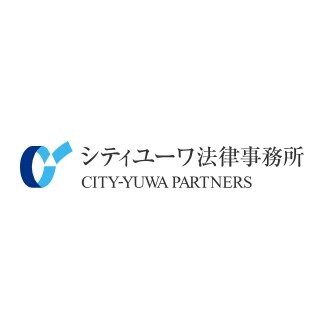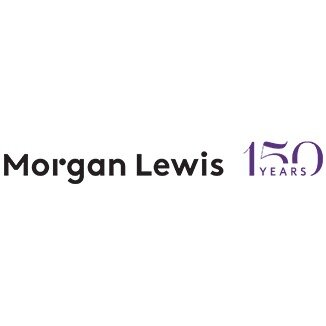Best Project Finance Lawyers in Chiyoda-ku
Share your needs with us, get contacted by law firms.
Free. Takes 2 min.
List of the best lawyers in Chiyoda-ku, Japan
About Project Finance Law in Chiyoda-ku, Japan
Project finance is a sophisticated method of funding large-scale infrastructure and industrial projects by relying on the project's future cash flows as the primary source of repayment, rather than the assets or creditworthiness of the project sponsors. In Chiyoda-ku, located in the heart of Tokyo, project finance is a vital element supporting major developments such as transportation networks, energy plants, and public-private partnership (PPP) initiatives. The legal landscape surrounding project finance in this area combines elements of Japanese commercial, contract, banking, and regulatory law, tailored to support both domestic and cross-border project investments.
Why You May Need a Lawyer
Engaging with project finance in Chiyoda-ku often involves complex legal arrangements. You may need a lawyer if you are:
- Negotiating or drafting financing agreements with lenders or investors
- Structuring joint ventures or consortiums for project development
- Navigating regulatory compliance, licensing, or permits, especially for energy, utilities, or infrastructure projects
- Assessing risks and liabilities related to project performance or repayment obligations
- Managing cross-border elements, like foreign investment or international borrowing
- Resolving disputes between stakeholders, contractors, or government agencies
- Addressing environmental, zoning, or land acquisition concerns
Local Laws Overview
Chiyoda-ku is governed by both national Japanese law and local Tokyo metropolitan regulations. Key legal aspects important for project finance include:
- Secured Transaction Laws: The Japanese Civil Code and other statutes guide collateralization and security interests, ensuring lenders have recourse if defaults occur.
- Regulatory Approvals: Projects, especially those in energy and infrastructure, require approvals from national ministries like METI and local Tokyo authorities.
- Public-Private Partnerships (PPP): Projects involving government participation are subject to the Act on Promotion of Private Finance Initiative and local ordinances detailing risk sharing, contractual obligations, and public benefits.
- Foreign Investment Controls: The Foreign Exchange and Foreign Trade Act may require prior notice or approval for overseas entities participating in certain sectors.
- Tax and Accounting: Tax treatment of project entities, interest payments, and asset depreciation can impact the overall structure.
- Environmental and Land Laws: Strict environmental impact assessments, land use regulations, and zoning rules must be satisfied before financing is finalized.
- Dispute Resolution: Contracts may stipulate Japanese court jurisdiction or arbitration, following the Arbitration Act.
Frequently Asked Questions
What is project finance and how is it used in Chiyoda-ku?
Project finance is a financing structure for large projects where repayment to lenders is based on the project's cash flows. In Chiyoda-ku, it is commonly used for infrastructure, energy, transportation projects, and PPPs.
Do I need approval to execute a project finance transaction in Chiyoda-ku?
Yes, most large projects require approvals from both national and local authorities, especially for environmental, land, and sector-specific regulations.
Can foreign investors participate in project finance in Chiyoda-ku?
Yes, but foreign investment may be subject to additional scrutiny and approval under the Foreign Exchange and Foreign Trade Act, particularly in restricted sectors.
What types of security can be given to lenders in Japan?
Lenders can take security interests over project assets, receivables, shares, and bank accounts, subject to Japanese security laws and proper registration.
How are risks typically allocated in a project finance structure?
Risks are allocated through detailed contractual agreements among various parties, often assigning construction, operational, and market risks to parties best equipped to manage them.
What legal issues might arise in public-private partnership (PPP) projects?
Key issues include regulatory compliance, complex risk sharing, governmental guarantees, contract enforcement, and land rights, requiring careful legal structuring.
How are disputes resolved in project finance contracts in Chiyoda-ku?
Disputes may be handled through Japanese courts or arbitration, depending on contract terms. Arbitration is common in international projects.
Are environmental impact assessments necessary?
Yes, most large projects must conduct detailed environmental assessments and obtain permits before proceeds can be disbursed or construction started.
What are the tax considerations for project finance?
Tax treatment of project revenues, deductibility of interest, withholding tax, and consumption tax may all be important and should be assessed during structuring.
When should I involve a lawyer in the project finance process?
Legal experts should be involved early, ideally before negotiations start, to structure agreements, obtain necessary approvals, and anticipate legal risks.
Additional Resources
For more information and guidance on project finance in Chiyoda-ku, the following resources and authorities can be useful:
- Ministry of Economy, Trade and Industry (METI): Regulatory guidance for energy and industrial sectors
- Tokyo Metropolitan Government: Local permits, business licenses, and environmental approvals
- Japan Bank for International Cooperation (JBIC): Financing information for projects involving international partners
- Japan External Trade Organization (JETRO): Support for foreign entities considering investment
- Japan International Cooperation Agency (JICA): Involvement and funding for public benefit projects
- Japan Association of Turnaround Professionals: Industry group for project finance and restructuring
- Local Bar Associations: Guidance and referrals to qualified project finance lawyers
Next Steps
If you are considering or facing legal issues related to project finance in Chiyoda-ku, follow these recommendations:
- Gather all relevant project information, including feasibility studies, financial models, and key documents
- Identify potential legal issues, such as required permits or international elements
- Contact a qualified Japanese lawyer with expertise in project finance and familiarity with local requirements in Chiyoda-ku
- Arrange an initial consultation to discuss your specific needs and next steps
- Work with your lawyer to ensure proper transaction structuring, risk management, and compliance with all regulations
- Continue to involve legal counsel throughout contract negotiations, project execution, and dispute resolution if needed
Lawzana helps you find the best lawyers and law firms in Chiyoda-ku through a curated and pre-screened list of qualified legal professionals. Our platform offers rankings and detailed profiles of attorneys and law firms, allowing you to compare based on practice areas, including Project Finance, experience, and client feedback.
Each profile includes a description of the firm's areas of practice, client reviews, team members and partners, year of establishment, spoken languages, office locations, contact information, social media presence, and any published articles or resources. Most firms on our platform speak English and are experienced in both local and international legal matters.
Get a quote from top-rated law firms in Chiyoda-ku, Japan — quickly, securely, and without unnecessary hassle.
Disclaimer:
The information provided on this page is for general informational purposes only and does not constitute legal advice. While we strive to ensure the accuracy and relevance of the content, legal information may change over time, and interpretations of the law can vary. You should always consult with a qualified legal professional for advice specific to your situation.
We disclaim all liability for actions taken or not taken based on the content of this page. If you believe any information is incorrect or outdated, please contact us, and we will review and update it where appropriate.














